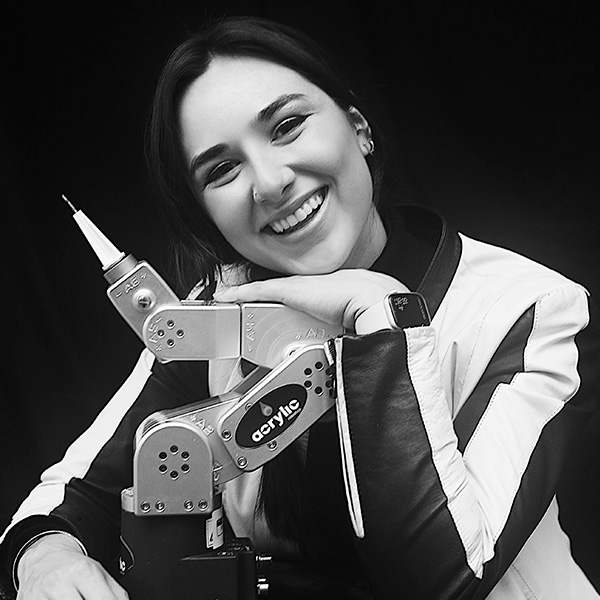Mona Nemer’s new job gives her unique access to some of the most powerful people in the country and the opportunity to help shape their approach to a wide range of science-related issues.
“Her advice will be invaluable and inform decisions made at the highest levels,” said Prime Minister Justin Trudeau, BA’94, as he officially announced that Nemer, PhD’82, would be Canada’s new chief science advisor.
It’s a role that Nemer is eager to take on.
“I’ve always had a sense that we, the scientists [of this country], needed to be involved in the public discourse [around science issues] because science is just so important for so many aspects of our lives,” says Nemer.
“I think it’s critical that we maintain our competitiveness when it comes to science in terms of [the global picture], that we don’t fall behind. We have some outstanding scientists in this country, we have outstanding young people training in science. We have a good system, but having a good system doesn’t mean that it’s perfect, it doesn’t mean you shouldn’t continue to tweak it and pay attention to it.”
The vice-principal of research at the University of Ottawa for 11 years, Nemer is credited with championing interdisciplinary research initiatives and undergraduate research opportunities at that institution. A well-regarded medical scientist and a Fellow of the Royal Society of Canada, her research has contributed to the development of diagnostic tests for heart failure and to our understanding of the genetics of cardiac birth defects.
Nemer says she has been hearing quite a bit from scientists across the country since her appointment was announced.
“I have received some very warm and kind notes, and I really want to acknowledge that and say how encouraging [that is] and how grateful I am to all my colleagues, including many from McGill. I’ve already received a lot of advice. I just want everybody to know that I have carefully read their emails—I’m not even finished reading them—and I welcome their suggestions and I also will eventually welcome their help in moving some issues forward.”
When asked how she is approaching her new role, Nemer responds, “My general philosophy is, first of all, one of openness. And one of objectivity and impartiality. I’m really hoping that I will manage to involve the [science] community increasingly in the public role, engaging constructively with decision-makers and with the public as well.”
The responsibilities of her job, according to the prime minister’s official web site, include ensuring “that government science is fully available to the public, that scientists are able to speak freely about their work, and that scientific analyses are considered when the government makes decisions.”
She will also be asked to “assess and recommend ways for the government to better support quality scientific research within the federal system.” And she will be expected to promote the benefits of science to the public.
“I am very much looking forward to that part,” says Nemer. “I have a deep conviction that science is actually part of our culture and our heritage, and we need to take as much pride in it as we take in our other [parts of our] heritage.”
Nemer wants Canadians to be more aware of the quality of the work done by the country’s scientists, but she has deeper concerns when it comes to the general public and science.
“We have close to half the public who doesn’t believe in science, who think it is opinion or propaganda or things like that. I think that is pretty worrisome,” she told the Ottawa Citizen in a recent interview.
“Increasingly, we ask questions about the food that we eat, the cosmetics we use,” she says. “The problem is that most Canadians can’t tell whether the ingredients on the labels are good or bad or what they mean. I think that the whole conversation going on around saturated and unsaturated fats, and healthy and unhealthy food in our schools, illustrates the importance for Canadians to get some understanding of science and be able to make decisions [with that knowledge].”
The way that science is taught in this country is one area worth examining, she suggests. “And this is where universities like McGill, that have great faculties of education and great faculties of science, can support an improved, enhanced science education.”
Before moving on to the University of Ottawa, Nemer spent many years in Montreal, doing her doctoral studies at McGill and eventually being awarded a Canada Research Chair in Cardiovascular Cell Differentiation at the Université de Montréal (she also served as an adjunct professor at McGill).
“McGill is very close to my heart,” says Nemer. “I did my PhD in the Department of Chemistry, which was, and still is, the top chemistry department in the country. I did my PhD with Kelvin Ogilvie in an area of chemistry that, I guess, was sort of off the radar and unconventional. I learned from that to be bold, to follow your instincts, to be persistent and determined, and I think these were traits that were all encouraged at McGill.
“I also enjoyed very much ‘Happy Hours’ on Friday afternoon at Thomson House. I was disappointed when I could no longer attend there [after I completed my degree] and needed some of my own graduate students to take me along. But we worked it out.”


